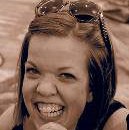- A
- A
- A

No matter which marginalized group you identify with, whether you’re Disabled, female, African American, LGBT, etc, you know the power of language and that words matter. Unfortunately, in your quest for certain language to be used (or not to be used), you have heard all the arguments in the book about political correctness and that the user did not ‘intend’ to be offensive. While advocating for certain language to be used regarding my body, I often hear the argument that a person didn’t ‘intend’ to hurt my feelings in their choice of words or that I don’t have the right to be angry since they had the right intentions.
Unfortunately, this is not how language and the meaning of words work. If it was, we, clearly, wouldn’t have a need for a dictionary in our society. Language, and its definition, is a social process and so we cannot “decide” what words mean based on what we want them to mean. In other words, intentions do not have anything to do with meanings.
So, it is the people hearing the words that define its meaning, not the speaker. Just as I could not go into a fast food restaurant tomorrow and decide that the word “cheeseburger” means “yogurt parfait,” you just cannot intend for your words to mean something other than what the person hearing you understands them to mean. Likewise, the meaning of a word can change as a community’s understanding of that word changes. Any teenager can tell you words their parents are using do not have the same meaning in their high school as they do in their parents’ circles. One simply cannot decide for themselves what the content of a word is and if it should be deemed offensive, hurtful or discriminatory. The meaning of words change as society changes and a word that was acceptable ten years ago may have dramatically different effects today.
Yet, we all too often hear men trying to explain what they think should be appropriate language for describing women and their experience or nondisabled people determining appropriate language for the disability community. This is easily done with an appeal to a person’s “good intentions.” If you find yourself wanting to define words on behalf of a group of people with which you do not identify, stop yourself. Immediately. This goes double for if you find yourself defensively saying, “ but that’s not what I intended those words to mean.”
I have been hearing exactly this kind of defensiveness from the supporters of Bernie Sanders after Sunday night’s Democratic debate, when he stated, “We are, if [I’m] elected president, going to invest a lot of money into mental health. And when you watch these Republican debates, you know why we need to invest in mental health.” Now, I generally think Bernie Sanders is a pretty good guy. I think many of the policies he is supporting would help a lot of people, including disabled people. However, many people within the disability community have taken these words to be harmful, and rightly so. By saying these words, Bernie indicated that the ideas, beliefs, values and opinions of people with non-apparent disabilities were profoundly flawed and something to be disparaged and discarded. He characterized people with these disabilities as fundamentally separate from him and his campaign.
While one might argue that this is not how Bernie truly feels or what he intended his words to mean, that simply does not matter. The fact of the matter is, he described an entire community of people in deeply stigmatizing terms and used the rhetoric of shame to silence them and distance them from his political coalition.
Contact: Leah Smith